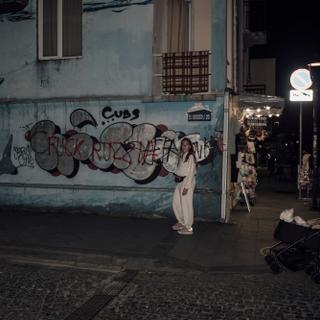


Putin opponents exiled in Georgia are worried: 'It started like this in Russia'
FeatureThe 'foreign influence' bill, which was modeled on a Russian law, was signed into Parliament on Monday, and seen as 'a step toward dictatorship.'
Russian opponents exiled in Georgia are experiencing déjà vu. For the past two months, this Caucasus country has been rocked by massive protests against the "foreign influence" bill. The bill, signed into law on Monday, June 3, is modeled on a Russian law from 2012. Under the guise of "transparency," it aims to silence civil society and independent media in the former Soviet republic. "It started like this in Russia," said Russian activist Anastasia Burakova, founder of the NGO Kovcheg, which helps compatriots who fled after the invasion of Ukraine in 2022. "Initially, only NGOs were targeted. The law was then extended to the media, and then to individuals. Civil society activists, journalists and human rights defenders were targeted." In just a few years, the law has become a tool of political repression at the service of the Kremlin, silencing all critical voices.
The same fate now threatens Georgia, where civil society and independent media are the last bastion against the authoritarian excesses of the country's strongman, Bidzina Ivanishvili, faced with a weakened opposition and a president with limited powers. "This law is very worrying. It's a step towards dictatorship," said Burakova. "It never happens all at once, but step by step: First, it's one group that's targeted, then another and, in the end, all it takes to be incriminated is to have posted a message on Facebook."

The human rights defender, in exile in Tbilisi since 2021, was herself labeled a "foreign agent" in Russia in December 2023 for giving interviews to extranational media on behalf of her organization. "Today in Russia, you don't need to have income from abroad to be labeled as such, all you need is 'foreign influence' in any form. This label aims to stigmatize you by designating you as a kind of spy, an enemy of the state." Burakova must, under Russian law today, write that she is a "foreign agent" every time she posts a message on her social media. "Even if I make a comment in a chat room," she said. The opponent refuses to do so, at the risk of criminal prosecution or even an extradition request.
With the passing of the "foreign influence" bill in Georgia, she could now, here too, be labeled as "pursuing the interests of a foreign power," with her organization receiving over 20% of its funding from other countries. This situation almost makes her smile: "I'll be a foreign agent twice over, in Russia and in Georgia."
'Request from Moscow'
Like most Georgians, exiled Russian opponents in the country are convinced that the Kremlin is behind this law. They point to the concomitance of the adoption, in April, of a similar law in Kyrgyzstan, and the attempts to also impose it in the pro-Russian Georgian separatist region of Abkhazia. They also point out that the ruling Georgian Dream party had no interest in passing this controversial law five months before parliamentary elections when it was in a strong position after the country gained official candidate status for the European Union in December 2023.
You have 54.27% of this article left to read. The rest is for subscribers only.
